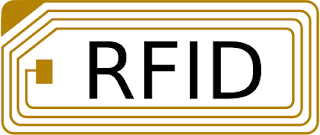Drug
counterfeiting is one of the biggest issues encompassing a global scale.
From local governments to private pharmaceutical giants to various international
non-profit organizations, anti-counterfeiting campaigns have been founded. The
internet has been penetrated so has been the local market units from legitimate
pharmacies to gray markets to black ones. Large authorities such as Food and
Drug Administration (FDA), United Nations (UN) and World Health Organization
(WHO) have already been involved, creating their own awareness programs and
raid operations. Billions of dollar-worth of medicines was already confiscated
from various physical manufacturers and online pharmacies. This goes to show
that everybody is now taking this crucial issue more seriously.
Despite the best
efforts, a lot of critics continue to question the late response of authorities
to issues of counterfeiting. This, they say, has already been too late as
thousands of people have already lost their lives from taking mislabeled, fraud, substandard, scammed and counterfeit
medicines which contain little or no active ingredient at all but
instead has hazardous substances such as chalk, paint or detergent.
“The persistence
of this issue shouldn’t have been here if they have gotten security in the
first place”, says Nicole Parker, head pharmacist and member of The Peterson
Group, a non-profit organization campaigning against the proliferation of counterfeit
medicine.
Big companies
claim their security is legit, yet, their brands are the most likely to be
counterfeited. For example, hundreds of counterfeit Tamiflu manufactured by
Roche, one of the world’s largest and most trusted producers of medicines, have
been seized in one of the legitimate pharmacies in Jakarta, Indonesia. When and
how was the medicines distributed in one of the most anti-counterfeiting countries
in the world, everybody is still trying to find out.
While the
operations are still underway, the new medicines are being processed patents,
the process which should have been implemented as the first step in countering
production of fraud meds.
A patent allows
the patentee to exclude third parties from making, using, importing, selling,
or offering for sale patented products or methods of manufacture or use for a
finite period of time, typically no more than 20 years from the date of initial
patent filing. Patent protection must be obtained on a country-by-country
basis. It is used to prevent others, for that geographical area and without the
consent of the patent holder, from manufacturing and/or selling exact and close
copies of the patented technology.

